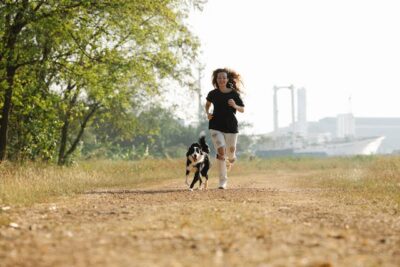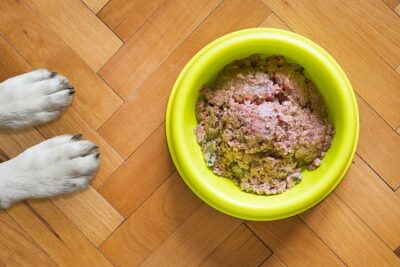Overview
Introduction: How to Make a Constipated Dog Poop Quickly
Constipation in dogs can be a discomforting and worrisome issue for pet owners. Recognizing the signs of constipation and knowing how to address it promptly are crucial for your furry friend’s health and well-being.
In this comprehensive guide, we will delve into effective strategies and home remedies on how to make a constipated dog poop quickly. From dietary adjustments to exercise techniques and preventive measures, we will explore various ways to help your canine companion find relief and maintain a healthy digestive system.
Understanding these methods can make a significant difference in your dog’s comfort and overall quality of life.

Recognizing Signs of Constipation
Behavioral Indicators
Our dogs communicate with us through behavior. Learn how to interpret subtle signs that may indicate constipation, ensuring you can act promptly.
If your furry companion is experiencing constipation, you may notice changes in their behavior, such as restlessness, increased straining during elimination, or signs of discomfort, like a tucked belly.
In the upcoming sections, we will delve into effective ways on how to make a constipated dog poop quickly, aiding in their comfort and overall health.
Physical Symptoms
Understanding the physical cues of constipation is crucial. This section provides insights into what to look for in your dog’s overall well-being. Watch out for signs like prolonged straining during bowel movements, a visibly distended belly, or changes in the frequency and consistency of dog poop. Recognizing these symptoms is the first step in helping your dog overcome constipation swiftly.
In the upcoming sections, we will explore common causes, immediate home remedies, and preventive measures to ensure your dog’s well-being. Let’s embark on this journey together to make a positive difference in your dog’s digestive health and learn how to make a constipated dog poop quickly.

Common Causes of Constipation in Dogs
Dietary Factors
Explore how your dog’s diet plays a pivotal role in their digestive health and what dietary elements might contribute to constipation.
If you notice your furry friend experiencing constipation, evaluating their diet is crucial. Sometimes, a lack of fiber or overreliance on dry food can contribute to difficulties in passing stool.
Consider incorporating fiber-rich options like canned pumpkin or adding more moisture to their diet through wet or canned food. This simple dietary adjustment can help treat constipation and promote a healthy digestive system.
Lack of Exercise
Physical activity is key. Discover how a lack of exercise can impact your dog’s bowel movements and overall health. Dogs, like humans, benefit greatly from regular exercise. It stimulates the digestive system, making bowel movements more regular.
If your dog is constipated, a good remedy is to increase their physical activity. Regular walks, playtime, and activities that engage their muscles can relieve constipation and contribute to their overall well-being.
Dehydration
Proper hydration is essential. Learn how dehydration can lead to constipation and how to ensure your dog gets enough water. Adequate water intake is crucial for maintaining healthy digestion. Dehydration can cause the stool to become hard and difficult to pass.
To relieve constipation, encourage your dog to drink more water. You can add moisture to their diet by offering ice cubes or incorporating wet food. By addressing these common causes, you can help your furry friend maintain a happy and comfortable digestive system.

Immediate Home Remedies
Increased Water Intake to Help Dog Poop Quickly
Recognize the simplicity and effectiveness of hydration as a remedy for constipation. Grasp the significance of water intake in alleviating constipation in your dog.
When tackling your dog’s constipation, a primary measure involves ensuring they maintain proper hydration levels.
Adequate water consumption is vital for softening the stool and encouraging regular bowel movements. If your dog is struggling with constipation, prompt them to increase their water intake.
You can introduce additional moisture to their diet by providing ice cubes or incorporating wet food, facilitating smoother and more frequent bowel movements. Consider offering warm water with a touch of apple cider vinegar and digestive enzymes to further aid your dog’s digestion. This holistic approach can be a supportive element in helping your dog through bouts of constipation.
Dietary Adjustments to Make A Dog Poop Quickly
Explore how tweaking your dog’s diet can make a significant difference, promoting regular and healthy bowel movements. Your dog’s food plays a crucial role in their digestion. If your furry friend is suffering from constipation, consider introducing canned food to their diet.
Canned food contains more moisture, which can contribute to easier digestion and relieve constipation. Additionally, incorporating foods with anti-inflammatory properties, such as canned pumpkin, can have a soothing effect on the digestive system.
More Fiber: Give Fiber Supplements
Discover safe and advantageous fiber supplements that can assist in relieving constipation in your canine companion. Sometimes, enhancing your dog’s diet with additional fiber proves beneficial in addressing constipation.
Fiber plays a crucial role in softening the stool and facilitating regular bowel movements. You can explore natural sources of fiber such as sweet potatoes or opt for over-the-counter fiber supplements recommended by your veterinarian.
Moreover, integrating probiotics into their diet can contribute to a healthy gut, fostering the presence of good bacteria in the digestive tract. Ensure you give your dog access to fresh water, and consider incorporating stool softeners like canned pumpkin into their diet for added digestive support.

Exercise Techniques
Recommended Physical Activities
Not all exercises are equal. Discover activities tailored to stimulate your dog’s digestive system and promote bowel regularity. When addressing constipation in your dog, incorporating specific physical activities can be instrumental.
Engage your furry companion in activities that encourage movement and muscle stimulation. This can include activities like fetch, agility exercises, or even simple jogging.
These exercises not only contribute to overall health but also help in preventing constipation by keeping the digestive system active.
Regular Walks and Playtime
Regular walks and playtime contribute to overall well-being. Find out how they play a crucial role in preventing constipation. A consistent routine of regular walks and playtime is essential for your dog’s physical and mental health. These activities promote movement and exercise, which are vital for a healthy digestive system.
Dogs that engage in regular walks and play are less likely to experience constipation, as the physical activity stimulates bowel movements. Ensure your furry friend gets ample opportunities for exercise to maintain their overall well-being and prevent issues like infrequent bowel movements.

Massage and Stomach Rubs To Help your Dog
Stimulate Bowel Movements to Make A Dog Poop
Discover the impact of gentle massage techniques in making a difference in your dog’s bowel movements.
Learn the art of using stomach rubs to effectively stimulate and encourage regular bowel movements.
Proper Techniques to Stimulate Bowel Movement
It’s crucial to understand the right way to perform massages and stomach rubs. Ensure that your actions are not only helpful but also gentle and free of harm. Pet parents can play a proactive role in aiding their dogs through discomfort, promoting relief and overall well-being.
Engage in circular motion with care, ensuring you’re assisting rather than causing any pain. This supportive approach can be instrumental in helping your dog experience smoother bowel movements and find comfort.

Temperature and Lubrication Methods
Warm Compress Application
Temperature can be a soothing ally in providing relief for constipated dogs.
Delve into the benefits of applying a warm compress to aid in alleviating discomfort and promoting smoother bowel movements.
Safe Lubricants for Dogs
Discover safe and effective lubrication methods tailored for dogs. Explore products that offer a gentle approach to relieving constipation, ensuring your canine companion experiences relief without unnecessary discomfort.
Taking these measures can contribute to a more comfortable digestive tract for your dog, facilitating a natural and pain-free relief process.

Veterinary Intervention For Dog Constipation
When to Seek Professional Help
Recognizing the signs that warrant veterinary assistance is crucial for your dog’s well-being.
Gain insights into when it’s time to involve the vet, especially if your dog’s constipation is causing persistent discomfort or if there are associated issues like pain, unusual feces, or signs of distress.
Diagnostic Procedures
Explore the various diagnostic procedures veterinarians may employ to pinpoint the root cause of your dog’s constipation.
From analyzing the digestive tract to assessing pain levels, these procedures play a vital role in tailoring an effective treatment plan and ensuring your dog’s health is in expert hands.

Medications for Prompt Relief for Dog Constipation
Over-the-Counter Options
Explore accessible over-the-counter medications that can offer prompt relief for constipated dogs.
These options, readily available for pet parents, can be a helpful first step in addressing constipation and promoting a healthier colon.
Prescription Medications to Make A Dog Poop
In certain scenarios, prescription medications may be necessary for more severe cases of constipation. Get acquainted with the prescription options available under veterinary guidance, ensuring a customized approach to meet your dog’s unique needs and prevent potential toxicity issues associated with specific medications.
This is crucial for maintaining your dog’s overall well-being and ensuring a smooth and healthy digestive process, avoiding any harmful effects on their colon or dietary habits.

How To Make A Constipated Dog Poop Quickly: Preventive Measures
Balanced Diet
Prevention is the cornerstone of health. Grasp the significance of a balanced diet in averting future instances of constipation in your dog and help your dog poop.
A balanced diet, rich in essential nutrients, fiber, and moisture, is key to maintaining your dog’s digestive well-being.
Consult with your veterinarian to create a customized nutrition plan that meets your dog’s unique dietary requirements, addressing both their immediate needs and long-term health.
Hydration Strategies
Discover effective hydration strategies that play a vital role in maintaining your dog’s overall digestive health. Adequate water intake is essential for preventing constipation, as it helps soften stool and promotes regular bowel movements.
Ensure your dog has constant access to fresh, clean water, and consider incorporating wet or canned food into their diet to boost moisture content. Hydration is a simple yet powerful tool in supporting your dog’s digestive system, contributing to their overall health and well-being.
Establishing a Regular Exercise Routine
Consistency is key. Explore how adhering to a regular exercise routine can be instrumental in preventing constipation in the long term, contributing to your dog’s overall well-being. a routine is crucial.
Find out how a regular exercise routine can prevent constipation in the long run.

How to Make A Constipated Dog Poop Quickly: Dietary Guidelines
High-Fiber Dog Foods
Embark on a journey into the realm of high-fiber dog foods, unraveling the benefits they offer in sustaining healthy digestion and promoting regular bowel movements.
These specialized dog foods, carefully curated with your dogs’ well-being in mind, serve as a vital component in maintaining optimal digestive health.
Consult your veterinarian to explore the best high-fiber dog food options tailored to your pet’s unique dietary needs.
Homemade Recipes
Navigating the vast landscape of commercial dog food can be overwhelming, but your veterinarian is a valuable resource in guiding you towards the most suitable options for your furry friend.
Consult with your vet to understand your dog’s specific dietary requirements and receive personalized recommendations on dog food brands that align with their health needs.
You can also research the vast collection of homemade recipes designed to be seamlessly integrated into your dog’s diet, to help promote regular bowel movements and help your dog poop quickly.

How to Make a Constipated Dog Poop Quickly: Hydration Strategies
Water Bowl Placement
Ensuring your dog stays well-hydrated is crucial for maintaining a healthy digestive system. Strategically placing the water bowl can play a key role in enticing your furry friend to drink more.
Consider locating it in easily accessible areas where your dog frequents, encouraging regular sips.
Flavoring Water for Encouragement
Hydration can become a more appealing experience for your dog with a touch of creativity. Adding an ice cube or a splash of apple cider vinegar to their water can enhance the flavor, making it more enticing.
These simple tricks not only encourage hydration but also contribute to a well-lubricated digestive tract, promoting smoother and quicker bowel movement.
How To Make A Constipated Dog Poop Quickly: Lifestyle Changes
Creating a Comfortable Environment
Ensuring your dog’s surroundings are comfortable can significantly impact their digestive health. Simple changes, such as providing a cozy bed or a quiet corner, create a stress-free space that promotes overall well-being, including a healthy gut.
Stress Reduction Techniques To Make A Dog Poop
Stress can take a toll on your dog’s digestive system, potentially leading to constipation. Discover effective techniques to reduce stress, like incorporating playtime, providing toys, or designating a peaceful area for your pet to retreat to when needed.
Potential Complications
Identifying Red Flags
While constipation is common, it’s crucial to be vigilant for red flags that may indicate more severe issues. Watch for signs like persistent diarrhea, changes in waste consistency, or any unusual behavior.
Identifying these red flags promptly allows for timely intervention.
Seeking Immediate Veterinary Attention
If you notice persistent issues or any signs of distress, it’s essential to seek immediate veterinary attention. Veterinarians are trained to assess potential complications, providing tailored solutions to address your dog’s unique needs.
Remember, early intervention can prevent complications and ensure your pet’s well-being.
Summary: How to Make a Constipated Dog Poop Quickly
As we wrap up this comprehensive guide, let’s recap the essential insights to empower you in aiding your constipated dog.
Understanding the signs of constipation and intervening early is paramount. Swift action can not only alleviate the current issue but also prevent future episodes, ensuring your dog’s digestive health.
We have also explored effective ways on how to make a constipated dog poop quickly, providing you with practical solutions to help your furry friend.
Conclusion: How to Make a Constipated Dog Poop Quickly
In conclusion, understanding how to make a constipated dog poop quickly is essential for ensuring your furry friend’s comfort and well-being. By recognizing the signs of constipation, making dietary adjustments, incorporating exercise, and utilizing home remedies like increased water intake and massage techniques, you can help your dog find relief from constipation.
Preventive measures such as maintaining a balanced diet, hydration strategies, and establishing a regular exercise routine are key in preventing future instances of constipation. Additionally, being aware of potential complications and seeking veterinary attention when necessary are crucial for your dog’s health.
By following these guidelines and incorporating them into your dog’s daily routine, you can help alleviate constipation and promote a healthy digestive system. Remember, your proactive approach plays a significant role in ensuring your dog’s overall well-being and happiness.
As you continue on your journey to provide the best care for your beloved pup, we invite you to explore additional resources on canine health and well-being. Visit our website, GA Puppies Online blog, for valuable insights, tips, and a collection of informative articles to further enhance your understanding of your canine companion.
In case you have any further questions or concerns, always consult with your vet for personalized advice tailored to your dog’s specific needs. Here’s to a future filled with joy and comfort, both for you and your beloved pup, as you navigate the path to a healthy gut and happy belly.
Frequently Asked Questions (FAQs): How to Make a Constipated Dog Poop Quickly
- Q1: What are the common signs that my dog is constipated?
- A: Look out for behavioral changes such as straining during bowel movements, reduced frequency of defecation, or signs of discomfort. Dry stools and a reluctance to defecate are also indicators.
- Q2: How to make a constipated dog poop quickly at home?
- A: Ensure your dog stays hydrated by offering fresh water regularly. Consider adding ice cubes or flavored water to entice them. Introduce high-fiber dog foods, and include probiotics in their diet to promote healthy digestion.
- Q3: Can certain dog breeds be more prone to constipation?
- A: Yes, some breeds may be more susceptible. It’s essential to understand your pup’s unique needs, especially if they are prone to dry stools. Adjusting their diet and providing proper hydration can be beneficial.
- Q4: Is it safe to use probiotics for my constipated dog?
- A: Yes, probiotics can be a safe and effective way to regulate your dog’s digestive system. They promote the growth of good bacteria in the gut, aiding in smoother bowel movements.
- Q5: How often should my dog defecate, and what if they have infrequent bowel movements?
- A: The frequency can vary, but most dogs defecate 1-2 times a day. If your pup has infrequent bowel movements and shows signs of discomfort, it’s crucial to address the issue promptly. Adjusting their diet, ensuring hydration, and seeking veterinary advice can help.




